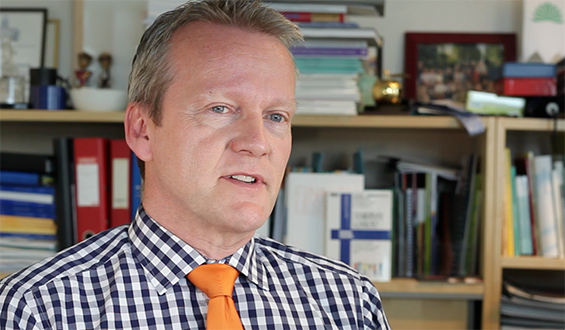News
Finland Moves to Interdisciplinary Curriculum Model
 Finland is leaving behind traditional subject teaching in schools in favor of topic teaching. School subjects such as math, history and science won’t be taught distinctly anymore, and the line between subjects will be more fluid as students will be exposed to several subjects at once as proposed ‘phenomenon teaching’ sets forth.
Finland is leaving behind traditional subject teaching in schools in favor of topic teaching. School subjects such as math, history and science won’t be taught distinctly anymore, and the line between subjects will be more fluid as students will be exposed to several subjects at once as proposed ‘phenomenon teaching’ sets forth.
Finland, which consistently ranks highly in literacy and numeracy achievement worldwide, challenged only by China and Singapore, is taking a unique approach to learning with an aim to activate a broader understanding of phenomena to adequately prepare students for adult working life.
Pasi Silander, Helsinki’s development manager, highlights that in a tech-driven society, the educational system must keep up with the socio-cultural demand in place,
As Finland’s Education minister Pasi Sahlberg explains, the shake-up is not meant to make students expert exam-takers, as “we prepare children to learn how to learn, not how to take a test.”
Students learning about French history will also get to learn about France’s geology and climate while at the same time being acquainted with its culture and language. In terms of vocational training, students will have the chance to learn ‘cafeteria services’, an interdisciplinary class that teaches math, communication and writing skills.
Finland, while topping the student PISA achievement charts, doesn’t follow a strict learning regime. On the contrary, students don’t begin formal schooling until they’re seven years old and during their schooling there’s prioritization of independence and play in the learning environment. Students take their first formal exam at the age of sixteen.
Unlike most countries’ focus on standardized tests, Finnish students tend not to feel test stress and pressure to do well on exsm, as the latter are only used for pinpointing student knowledge rather than grading and labeling students.
To ease students and teachers into the new educational reality, the co-teaching approach is implemented in which lesson planning is not done by a single teacher but together with other subject specialists. 7 in 10 Helsinki high school teachers are already proficient in the co-teaching approach to teaching, Richard Gardner of the Independent writes.
Preliminary evidence suggest the new teaching model is paying off with Finnish students enjoying improved learning outcomes thanks to the multi-topic approach. Implementing an interdisciplinary approach to learning helps students understand the reason they’re learning something, education manager Marjo Kyllönen emphasizes.
The reform is opposed by a portion of teachers who don’t find the co-teaching approach a viable and effective strategy. The new education program has been piloted in several school already and the goal is to have all schools implement the new scheme by 2020. As Kyllonen explains:
“We really need a rethinking of education and a redesigning of our system, so it prepares our children for the future with the skills that are needed for today and tomorrow.”
Web-site: http://www.educationnews.org/


